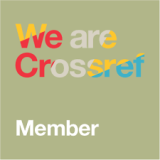PENGEMBANGAN KOMPETENSI DALAM PENDIDIKAN PERBANKAN SYARIAH: ANALISIS KOMPARATIF ANTARA UIN SYAHADA PADANGSIDIMPUAN DAN UiTM MALAYSIA
Abstract
Penelitian ini mengeksplorasi strategi pengembangan kompetensi pada Program Studi Perbankan Syariah di UIN Syahada Padangsidimpuan dengan pendekatan komparatif terhadap praktik di Universiti Teknologi MARA (UiTM) Malaysia. Bertujuan mendukung pencapaian akreditasi unggul dan pengakuan global, studi ini menggunakan metode deskriptif kualitatif, termasuk wawancara mendalam, observasi, dan analisis dokumen untuk mengidentifikasi elemen strategis dalam kurikulum, kemitraan industri, serta penggunaan teknologi finansial (fintech). Temuan menunjukkan bahwa strategi berbasis industri, integrasi teknologi, dan kolaborasi dengan sektor keuangan, seperti yang diterapkan di UiTM, efektif membekali mahasiswa dengan kompetensi sesuai kebutuhan industri perbankan syariah. Berdasarkan analisis ini, penelitian merekomendasikan peningkatan kurikulum praktis, penguatan jaringan industri, dan adaptasi fintech di UIN Syahada sebagai langkah strategis untuk meningkatkan daya saing global lulusan. Penelitian ini memberikan kontribusi pada literatur pendidikan perbankan syariah di Indonesia dan menawarkan panduan praktis bagi institusi yang ingin memperkuat pengembangan kompetensi mahasiswa sesuai standar internasional, sekaligus mendukung tujuan akreditasi unggul yang diupayakan oleh UIN Syahada.
Kata kunci: Pengembangan Kompetensi, Strategi Kurikulum, Akreditasi Program Studi
Keywords
Full Text:
PDFReferences
Açıkgöz, T., & Babadoğan, M. C. (2021). COMPETENCY-BASED EDUCATION: THEORY AND PRACTICE. Psycho-Educational Research Reviews. https://doi.org/10.52963/PERR_Biruni_V10.N3.06
Ade Fadillah FW Pospos. (2022). Analisis Relevansi Kompetensi Lulusan Prodi Perbankan Syariah FEBI IAIN Langsa Terhadap Kebutuhan Dunia Kerja. Jurnal Kewarganegaraan, 6(2).
AKSOY, S. (2024). DETERMINING SUPPLY CHAIN STRATEGIES BY SWOT ANALYSIS: A CASE STUDY. Beykent Üniversitesi Fen ve Mühendislik Bilimleri Dergisi, 16(2), 1-10. https://doi.org/10.20854/bujse.1211332
Almeida, L. A. de, Bianco, M. de F., Moraes, T. D., & Alves, R. B. (2023). The Contribution of Interdisciplinarity to the Development of Competencies for WorkRelated Mental Health in Primary Health Care. Organizações & Sociedade, 30(107), 641-669. https://doi.org/10.1590/1984-92302023v30n0023en
Andreou, V., Peters, S., Eggermont, J., Embo, M., Michels, N. R., & Schoenmakers, B. (2023). Fitness-for-purpose of the CanMEDS competencies for workplace-based assessment in General Practitioner's Training: a Delphi study. BMC Medical Education, 23(1), 204. https://doi.org/10.1186/s12909-023-04207-2
Brandi, U., & Iannone, R. L. (2017). Learning strategies for competence development in enterprises. Industrial and Commercial Training, 49(1), 1-5. https://doi.org/10.1108/ICT-08-2016-0052
Brønn, C., & Brønn, P. S. (2018). Corporate Strategy. In The International Encyclopedia of Strategic Communication (pp. 1-18). Wiley. https://doi.org/10.1002/9781119010722.iesc0052
Carroll, K., & Hickman, W. B. (2022). Strategy. In Understanding the U.S. Military (pp. 173-185). Routledge. https://doi.org/10.4324/9781003154877-15
Chou, C., Tseng, S., Wang, C., Chao, P., Chen, Z., Lai, K. R., Chan, C., & Yu, L. (2018). Learning analytics on graduates' academic records to reflect on a competency-based curriculum. Computer Applications in Engineering Education, 26(6), 2168-2182. https://doi.org/10.1002/cae.22019
Christiansen, J. K., Hansen, A., Varnes, C. J., & Mikkola, J. H. (2005). Competence Strategies in Organizing Product Development. Creativity and Innovation Management, 14(4), 384-392. https://doi.org/10.1111/j.1467-8691.2005.00358.x
Curry, L., & Docherty, M. (2017). Implementing Competency-Based Education. Collected Essays on Learning and Teaching, 10, 61-74. https://doi.org/10.22329/celt.v10i0.4716
Dalcher, D. (2019). Strategy as learning to discover the way forward. In Leading the Project Revolution (pp. 99-110). Routledge. https://doi.org/10.4324/9780367028749-10
Damek, S., Söbke, H., Weise, F., & Reichelt, M. (2022). Teaching (Meta) Competences for Digital Practice Exemplified by Building Information Modeling Work Processes. Knowledge, 2(3), 452-464. https://doi.org/10.3390/knowledge2030027
Farvita Asidi. (2017). EFEKTIVITAS PRAKTEK LABORATORIUM PERBANKAN SYARIAH DALAM MENINGKATKAN KOMPETENSI MAHASISWA DI BIDANG PERBANKAN SYARIAH.
Gervais, J. (2016a). The operational definition of competency-based education. The Journal of Competency-Based Education, 1(2), 98-106. https://doi.org/10.1002/cbe2.1011
Gervais, J. (2016b). The operational definition of competency-based education. The Journal of Competency-Based Education, 1(2), 98-106. https://doi.org/10.1002/cbe2.1011
Gorenak, M., & Ferjan, M. (2015). The influence of organizational values on competencies of managers. E+M Ekonomie a Management, 18(1), 67-83. https://doi.org/10.15240/tul/001/2015-1-006
Hamed, R., Banks, T. M., Mahoney, D., Simon, P., Timmerberg, J. F., & Nilsen, D. M. (2023). A Call to Shift to Competency-Based Education. The American Journal of Occupational Therapy, 77(6). https://doi.org/10.5014/ajot.2023.050402
Hatcher, R. L., Fouad, N. A., Grus, C. L., Campbell, L. F., McCutcheon, S. R., & Leahy, K. L. (2013). Competency benchmarks: Practical steps toward a culture of competence. Training and Education in Professional Psychology, 7(2), 84-91. https://doi.org/10.1037/a0029401
Hernández-de-Menéndez, M., & Morales-Menendez, R. (2017, June 21). Competency Based Education - Current Global Practices. Proceedings of the 3rd International Conference on Higher Education Advances. https://doi.org/10.4995/HEAD17.2017.5536
Janssens, O., Embo, M., Valcke, M., & Haerens, L. (2023). When theory beats practice: the implementation of competency-based education at healthcare workplaces. BMC Medical Education, 23(1), 484. https://doi.org/10.1186/s12909-023-04446-3
Jippes, E., Van Luijk, S. J., Pols, J., Achterkamp, M. C., Brand, P. L. P., & Van Engelen, J. M. L. (2012). Facilitators and barriers to a nationwide implementation of competency-based postgraduate medical curricula: A qualitative study. Medical Teacher, 34(8), e589-e602. https://doi.org/10.3109/0142159X.2012.670325
Jönsson, S., & Schölin, T. (2016). Process of change - competence development as a restructuring strategy. Journal of Management Development, 35(1), 2-16. https://doi.org/10.1108/JMD-11-2013-0146
Kaslow, N. J., Grus, C. L., Campbell, L. F., Fouad, N. A., Hatcher, R. L., & Rodolfa, E. R. (2009). Competency Assessment Toolkit for professional psychology. Training and Education in Professional Psychology, 3(4, Suppl), S27-S45. https://doi.org/10.1037/a0015833
Kock, H., & Ellström, P. (2011). Formal and integrated strategies for competence development in SMEs. Journal of European Industrial Training, 35(1), 71-88. https://doi.org/10.1108/03090591111095745
Kubova-Semaka, J. (2020). An Integral Approach to the Meaning of Competence. Vilnius University Open Series, 3, 120-135. https://doi.org/10.15388/SRE.2020.11
Liang, Z., Leggat, S. G., Howard, P. F., & Koh, L. (2013). What makes a hospital manager competent at the middle and senior levels? Australian Health Review, 37(5), 566. https://doi.org/10.1071/AH12004
Lisse, S. (2022). What is strategy: Basic terms and definitions. Tehnika, 77(3), 389-398. https://doi.org/10.5937/tehnika2203389L
Marillo, C., Freeman, B., Espanha, A., Watson, J., & Viphindrat, B. (2024). Strategies for Competence Development in Dynamic Business Landscapes. Interconnection: An Economic Perspective Horizon, 1(4), 233-241. https://doi.org/10.61230/interconnection.v1i4.76
Morcke, A. M., Dornan, T., & Eika, B. (2013). Outcome (competency) based education: an exploration of its origins, theoretical basis, and empirical evidence. Advances in Health Sciences Education, 18(4), 851-863. https://doi.org/10.1007/s10459-012-9405-9
Rhoney, D. H., & Meyer, S. M. (2024). Competency-Based Education: The Need to Debunk Misconceptions and Develop a Common Language. American Journal of Pharmaceutical Education, 88(2), 100637. https://doi.org/10.1016/j.ajpe.2023.100637
Sluijsmans, D. M. A., Straetmans, G. J. J. M., & van Merriënboer, J. J. G. (2008). Integrating authentic assessment with competence-based learning in vocational education: the Protocol Portfolio Scoring. Journal of Vocational Education & Training, 60(2), 159-172. https://doi.org/10.1080/13636820802042438
Spaak, T. (2009). Explicating the Concept of Legal Competence (pp. 67-80). https://doi.org/10.1007/978-90-481-2982-9_5
Staškeviča, A. (2019). The Importance of Competency Model Development. Acta Oeconomica Pragensia, 27(2), 62-71. https://doi.org/10.18267/j.aop.622
Suryanti, A. A. (2019). ANALISIS KOMPETENSI KURIKULUM PRODI PERBANKAN SYARIAH UIN AR-RANIRY BANDA ACEH DAN KESESUAIANNYA DENGAN KEBUTUHAN BANK SYARIAH. Jihbiz, 1(1).
Vinardi, C. (2023). Introduction (pp. 1-4). https://doi.org/10.1007/978-3-031-20963-5_1
Weinberger, S. E. (2010). Competency-Based Education and Training in Internal Medicine. Annals of Internal Medicine, 153(11), 751. https://doi.org/10.7326/0003-4819-153-11-201012070-00009
DOI: http://dx.doi.org/10.30829/ajei.v9i2.22040
Refbacks
- There are currently no refbacks.
Copyright (c) 2024 Muhammad Arif, Sarmiana Batubara

This work is licensed under a Creative Commons Attribution-ShareAlike 4.0 International License.





3.jpg)






